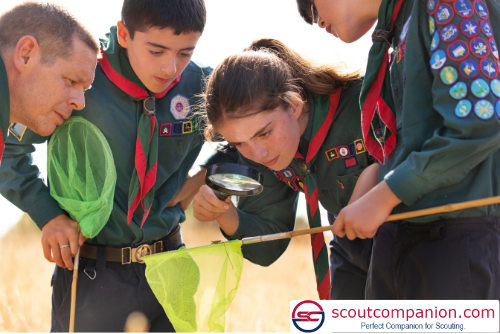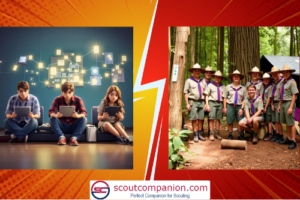The skill is the ability to perform an activity through training and practice. Each scout member needs to master and learn the essential skills through group practices and physical tasks. This guide will cover the essential skills that every scout should master.
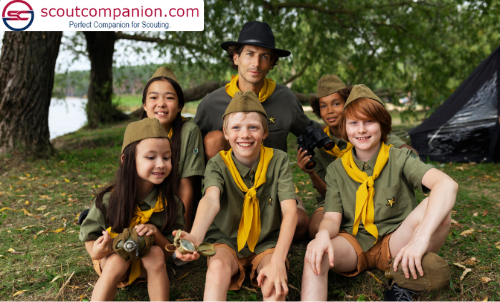
Table of Contents
The Importance of Essential Skills in Scouting
Scouting is a way for teenagers to have life-changing adventures while also learning basic survival skills that they can use at any time, along with character building. The scouts also receive Scout badges that are worn on the Scout uniforms to signify their membership and achievements in the form of motivation. For more on scouting principles and badges, you can explore the Boy Scouts of America Official Site.
The Role of Essential Skills in Scouting
The essential skills that scouts learn from scouting will help them to take responsibility for their actions, which will prepare them for their adult lives as independent people. Let’s go through some of the essential skills that every scout should master:
Essential Skills Every Scout Should Master
- Leadership
- Preparedness
- Citizenship
- Teamwork
- Communication
- First Aid
- Outdoor survival skills
- Navigation
- Problem-solving
- Camping
Leadership
Leadership is a matter of intelligence, trustworthiness, humanity, courage, and discipline. Relying on intelligence alone can lead to rebelliousness, while exercising humaneness alone results in weakness. Fixation of trust will result in folly. Dependence on the strength of courage will lead to violence, and excessive discipline in command will result in cruelty. But the balance of all five virtues together, each appropriate to its function, will make one a true leader.
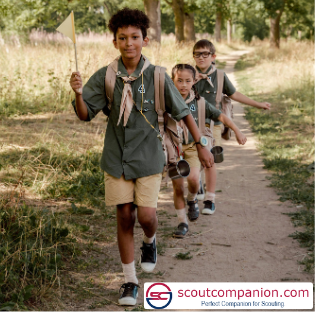
Scout members are encouraged to take leadership roles within their troops, ranging from being a patrol leader to a senior patrol leader. These leadership qualities that are developed at a very young age in scouting often carry over to adulthood.
The confidence gained in scouting through guiding the troops in training or taking charge of the community is invaluable. Leadership leads to the adaptation of the following qualities:
- Empathy
- Integrity
- Delegation
- Self-awareness
- Patience
Preparedness
The motto of the scout, “Be prepared,” is one of the essential skills in a scout and an incredible skill to boot. Being prepared means thinking of all the things that could go wrong and having a solution at the ready. Preparedness extends beyond physical preparedness to include moral and ethical readiness. It can help the scout members to face difficulties and even emergency and challenging situations.
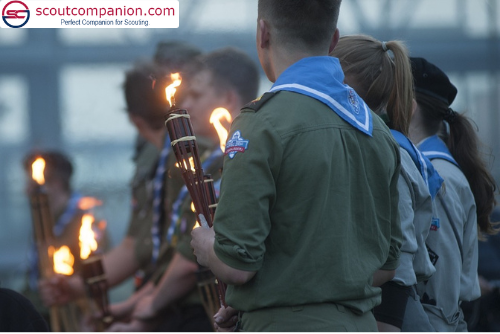
Being prepared empowers scouts to remain calm and act wisely in dangerous situations. As per the saying, prevention is better than cure; readiness helps the scouts sense any danger prior to it occurring.
Preparedness provides the following benefits:
- Being organized
- Reduced fear
- Preventing disasters
- Easy recovery
Citizenship
A good citizen is someone who respects the laws and contributes to the betterment of his/her community and country through active commitment. Today’s scouts are tomorrow’s good citizens. Each scout should also develop patriotism, loyalty, and service to others. A good citizen should develop qualities like responsibility, empathy, ethical behavior, leadership, and respect for diversity. Through camp training and social and community services, individuals can become good citizens who can make a difference in their environment.
Teamwork
“Two hands are better than one; four hands are better than two.”
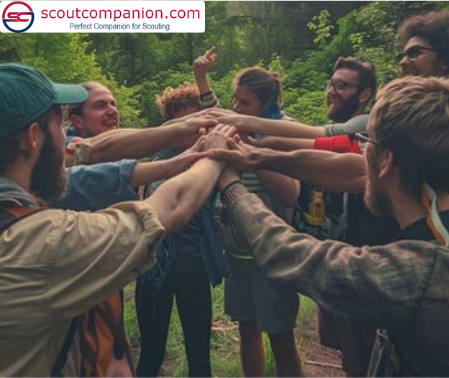
Teamwork is when a group of members work together towards a common goal by supporting each other. Activities like camping, hiking, cooking, etc. can be done as a team.
Through teamwork, each scout gets the opportunity to communicate with other scouts. This paves the way for building friendships and a better understanding of other scouts. Teamwork will also save lives during rescues in emergencies.
Scouts who are involved in teamwork will master cooperation and adjustments while working with other scouts. When working as a team, each individual will bring out their unique skill as a part of their contribution, which will empower the team to be successful.
Communication
“Communication is the process of exchanging information.”
As scouting is full of team activities, it is necessary to communicate with other scouts for better engagement in tasks. Apart from doing tasks, a long-lasting friendship can also be formed through communication. Rather than speaking, the scouts should also master other communication skills like listening, reading, and writing.
The scouts should also know when to speak up and when to keep their thoughts to themselves. By mastering communication, scouts can overcome stage fear, develop leadership, and build strong relationships even when they grow into adults.
First-Aid
First aid is immediate medical attention administered after an injury to prevent further worsening. It is one of the essential skills that every scout should master so that they can provide medical assistance until they can receive professional medical care.
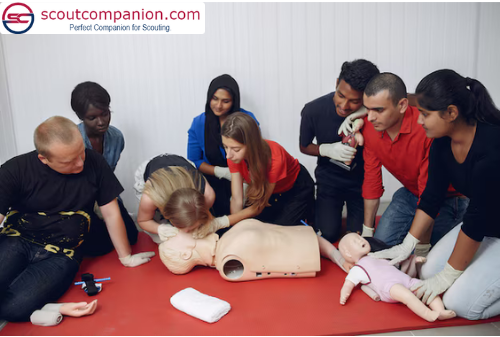
Scouts should also learn how to give medical care to various emergency situations, from minor injuries to major disasters. Following are some of the rules that every scout should master while doing first aid:
- Do the first aid quickly and quietly without panicking.
- Give reassurance to the injured one by talking or listening to make the situation calm.
- Stop the bleeding if any.
- Follow the ABC rule. (A-Airway, B-breathing, C-circulation)
- Give artificial breathing if the breathing has stopped.
- Do not allow people to crowd around the spot.
- Arrange for transportation to the hospital.
By practicing the above rules, a scout can even save lives with little actions.
Outdoor Survival Skills
As a part of these essential skills, the scouts should learn how to set up camps, navigate with a map and compass, find their food, build fire, and cook their food.
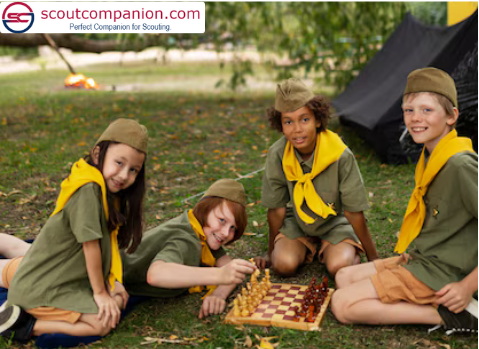
Apart from scouting activities, these survival skills will give them a hand even when they become adults.
Scouts also earn achievement badges for surviving in the wilderness, hiking, and hunting. These outdoor survival skills improve the self-reliance of the scouting members.
The scouts also gain physical strength and body fitness by participating in a variety of adventures that require physical strength and endurance. Being fit not only enhances body positivity but also overall health.
Navigation
Scouts use maps and compasses as a guide for navigation when doing outdoor adventures like hiking, wilderness survival, and treasure hunting. The ability to navigate using a map and compass instead of GPS is a satisfying skill to master as a scout member.
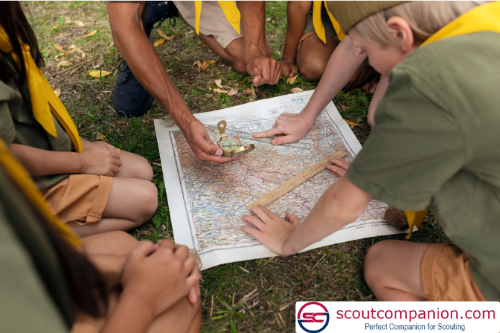
To navigate effectively during adventures, the scouts should have the following knowledge:
- should know how to read maps and map symbols.
- should possess maps and compasses.
- should know how to use the compass, specifically the grid magnetic angle.
- should know the travel techniques like recognizing landmarks, valleys, hills, terrain, etc.
Problem-solving
Problem-solving is one of the incredible essential skills that the scouts can develop during scouting practices that can enhance their ability to solve real-world problems even as adults.
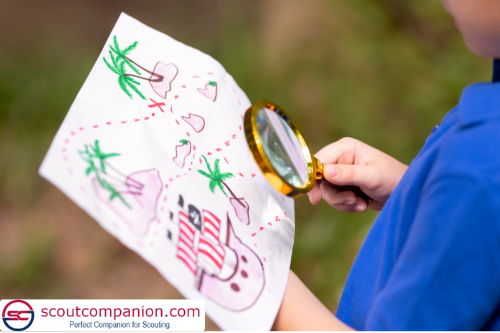
Often the scouts are made to solve problems on their own, which will build self-reliance and independence. Along with problem-solving, the scouts also develop the ability to analyze situations, decision-making, and critical thinking skills.
These skills help them in their personal and professional lives as they get the ability to find solutions to critical problems and also adapt to the changing environment, which is highly prized in this modern world and can lead to success in various fields.
Camping
A scout camp, also known as a Scout Center or Scout Park, is a facility or campsite that can be seen both in urban and natural environments.
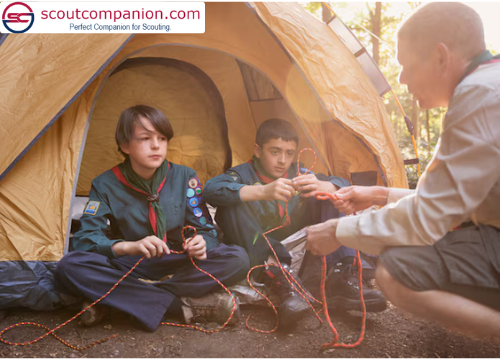
Camping may sound like a fun-filled and easy activity, but in fact, it requires a lot of exceptional skills and abilities. When setting up camps for scouting, the scouts choose places with safety, a good environment, comfort, location, water resources, sanitary facilities, avoiding prohibited areas, and getting permission from camping authorities.
To master the art of camping, the scouts should have the following mandatory skills:
- Proper planning skills
- Geography knowledge
- Building a Campfire
- Cooking skills
- Using the tools
- Survival skills
- Knot-tying skills
- Cooperation and interpersonal skills
Conclusion: The Lasting Value of Essential Skills in Scouting and Life
In conclusion, the essential skills that every scout should master are not only making themselves ready and getting excited for the adventures but also upgrading them with life-saving skills that will yield benefits even in their adulthood. As scouting makes all the scouts participate in fun-filled team activities, they adapt bonus skills like empathy, integrity, self-awareness, delegation, etc. These skills and qualities not only help them in their personal lives but also make them good citizens. Last but not least, apart from collecting badges for achievements, they gain new, long-lasting friendships during scouting.
